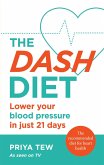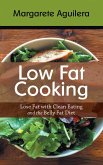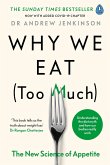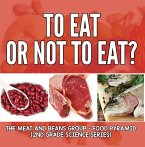What constitutes a healthy diet? Mainstream media and advertisers would like you to think that the answer to this question is complicated and controversial. But science, fortunately, tells us otherwise.
A Conversation about Healthy Eating brings together all the relevant science about healthy eating in one place, and it's exactly that - a conversation; an informal discussion between a scientist and a friend about their eating habits,keeping the science firmly rooted in everyday life. The conversation moves from topics such as metabolism and digestion to gut bacteria, hormones, neuroscience and the immune system. All of these concepts are explained in accessible terms to help you understand the roles they play in maintaining a healthy diet.
The conversation leads to the conclusion that staying lean and healthy simply requires avoiding the overconsumption of processed foods. While this is, of course, easier said than done, science also provides clear recommendations for how you can adapt your environment and lifestyle to make it possible.
Rather than simply presenting you with the principles of healthy eating, this book will help you to develop a comprehensive understanding of the science behind the principles, including the evolutionary facts that affect the way we eat today. This understanding will allow you to ignore the noise in the media and to move forward with a healthy lifestyle that work for you.
Praise for A Conversation about Healthy Eating
'I wish I'd read this book when I was young. I wish my parents had read it. And I wish it was on the national curriculum, so that every child about the age of 12 or so would read it. Because it is not just accessible, it is comprehensive, clear, and seems about as accurate as the current scientific consensus. In short, it is a perfect tool for us to understand this aspect of our own bodies.'
Bastian's Book Reviews
'Recommended. . . . Lesica writes as though in dialogue with a hypothetical friend, . . . allow[ing] for a deceptively easy presentation . . . on the relationships between diet, health, and human behavior.'
Choice
A Conversation about Healthy Eating brings together all the relevant science about healthy eating in one place, and it's exactly that - a conversation; an informal discussion between a scientist and a friend about their eating habits,keeping the science firmly rooted in everyday life. The conversation moves from topics such as metabolism and digestion to gut bacteria, hormones, neuroscience and the immune system. All of these concepts are explained in accessible terms to help you understand the roles they play in maintaining a healthy diet.
The conversation leads to the conclusion that staying lean and healthy simply requires avoiding the overconsumption of processed foods. While this is, of course, easier said than done, science also provides clear recommendations for how you can adapt your environment and lifestyle to make it possible.
Rather than simply presenting you with the principles of healthy eating, this book will help you to develop a comprehensive understanding of the science behind the principles, including the evolutionary facts that affect the way we eat today. This understanding will allow you to ignore the noise in the media and to move forward with a healthy lifestyle that work for you.
Praise for A Conversation about Healthy Eating
'I wish I'd read this book when I was young. I wish my parents had read it. And I wish it was on the national curriculum, so that every child about the age of 12 or so would read it. Because it is not just accessible, it is comprehensive, clear, and seems about as accurate as the current scientific consensus. In short, it is a perfect tool for us to understand this aspect of our own bodies.'
Bastian's Book Reviews
'Recommended. . . . Lesica writes as though in dialogue with a hypothetical friend, . . . allow[ing] for a deceptively easy presentation . . . on the relationships between diet, health, and human behavior.'
Choice
Dieser Download kann aus rechtlichen Gründen nur mit Rechnungsadresse in A, D ausgeliefert werden.









